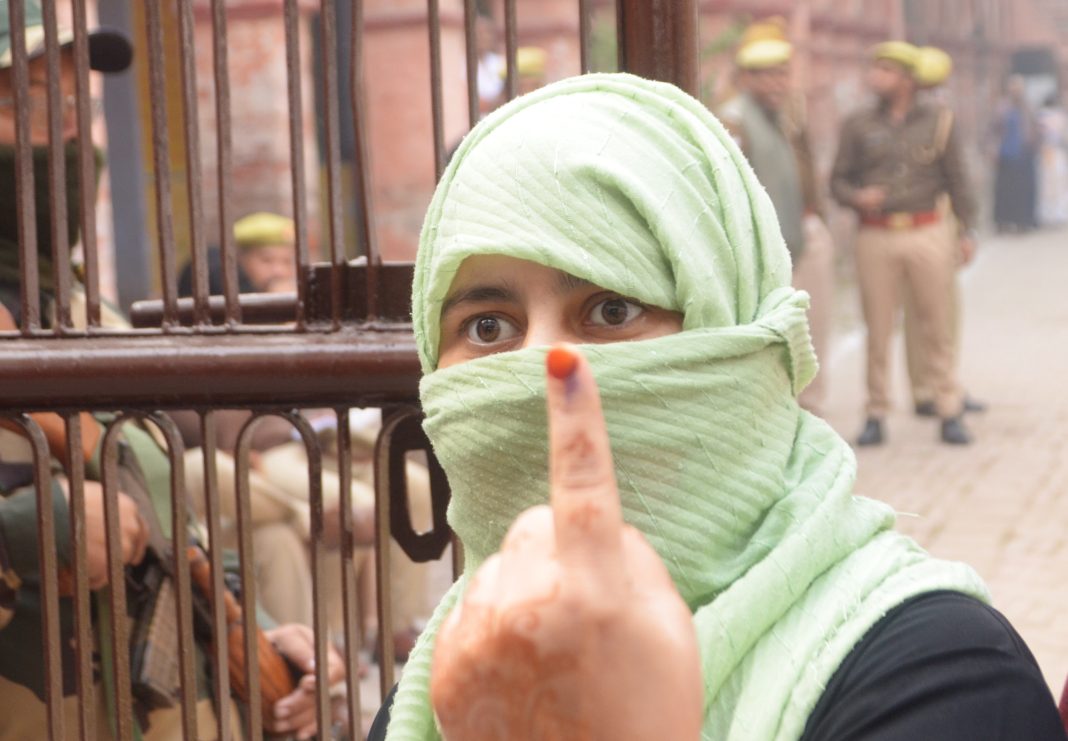Joya Saikia
The recent approval of the Menstrual Hygiene Policy by the Health Ministry is a landmark decision that addresses a critical but often overlooked issue affecting millions of girls and women in India. This progressive policy not only mandates separate female toilet facilities in all government, government-aided, and residential schools but also aims to provide free sanitary pads to female students from Classes VI to XII. The initiative represents a significant stride toward improving menstrual hygiene management, reducing health risks, and fostering gender equality.
The Importance of Menstrual Hygiene in Schools
Sanitary pads are more than just a tool for menstrual management; they represent a means to empower young girls by enabling them to attend school regularly. Menstrual hygiene is a cornerstone of good health, reducing the risk of infections that stem from poor practices. Studies indicate that providing sanitary pads to schoolgirls can enhance their attendance by over 30%. This simple yet impactful measure ensures that menstruation does not disrupt a girl’s education, thereby reducing dropout rates and curbing the prevalence of early child marriage.
The policy not only prioritizes access to menstrual products but also underscores the importance of creating a supportive environment for adolescent girls. Separate toilet facilities equipped with disposal mechanisms and access to menstrual products can alleviate the stigma surrounding menstruation, enabling girls to focus on their education without fear or shame.
Challenges in Menstrual Hygiene Practices
Despite being a natural biological process, menstruation is surrounded by taboos and misinformation in India. Research shows that only 12% of menstruating women in the country use sanitary napkins. The majority—particularly those from rural and low socio-economic backgrounds—resort to using unhygienic alternatives such as old cloth. These materials, often reused and stored in unsanitary conditions, pose significant health risks, including reproductive tract infections (RTIs). Severe cases of RTIs can even lead to life-altering consequences such as the removal of the uterus at a young age.
The problem is compounded by a lack of awareness. Shockingly, 82% of women in India remain unaware of what a sanitary napkin is. For many, the high cost of these products makes them inaccessible, forcing them to compromise on their health and dignity.
The Role of Education and Awareness
The onset of menstruation, or menarche, marks a critical phase in a girl’s life. However, the lack of information often leaves young girls unprepared for the changes they experience. Mothers, the primary source of guidance, frequently fail to educate their daughters due to their own limited understanding or the perpetuation of societal taboos. Teachers, who could play a pivotal role, often shy away from discussing menstruation, deeming it outside their responsibilities.
This pervasive silence has dire consequences. In rural areas, approximately 23% of girls drop out of school upon reaching puberty. The lack of menstrual management options and the stigma attached to menstruation drive these girls out of the education system, robbing them of opportunities for personal and professional growth.
Addressing these gaps requires a concerted effort to spread awareness among mothers, schoolteachers, and community members. Educating girls about menstruation and its associated changes from an early age can help dismantle myths and instill confidence in managing their health. Schools must adopt a holistic approach, integrating menstrual education into their curriculum and providing a supportive infrastructure for students.
The Broader Social Implications
Menstrual hygiene management is not just a women’s issue; it is a societal concern that demands the involvement of men and boys. Educating male students about menstruation can foster empathy and support for their sisters, classmates, and future partners. The distribution of sanitary pads in schools offers a unique opportunity to normalize discussions around menstruation, encouraging open conversations that challenge deep-rooted taboos.
Furthermore, health workers, accredited social health activists (ASHAs), and anganwadi workers can play a crucial role in disseminating knowledge about menstrual hygiene in communities. Their efforts can bridge the information gap, particularly in rural areas where traditional beliefs often hinder progress.
Breaking the Silence and Stigma
The implementation of the Menstrual Hygiene Policy must be accompanied by efforts to dismantle the stigma surrounding menstruation. Sensitization campaigns targeting both men and women can challenge cultural taboos and foster a more inclusive society. Training programs for teachers, healthcare workers, and community leaders can equip them to address menstrual health issues effectively, ensuring that no girl feels ashamed or isolated because of her biological functions.
Encouraging male participation in these conversations is equally important. Changing the belief systems of men, from fathers to peers, can create a ripple effect, fostering a supportive environment for women to thrive.
A Holistic Approach for Long-Term Impact
The Menstrual Hygiene Policy represents a significant step forward, but its success depends on a multi-sectoral approach. Partnerships between government bodies, non-governmental organizations, and local communities are essential to implement the policy effectively. Research in this area remains limited, and more studies are needed to evaluate the impact of menstrual hygiene initiatives on health, education, and social outcomes.
The Menstrual Hygiene Policy is a bold move toward addressing a critical issue that has long been neglected. By providing free sanitary pads, enhancing awareness, and challenging societal norms, the policy has the potential to transform the lives of millions of girls and women in India. However, its success hinges on a collective effort to break the silence and shame surrounding menstruation. With the right strategies and support, this initiative can pave the way for a healthier, more equitable future.
(the writer can be reached at joyasaikia1990@gmail.com)




